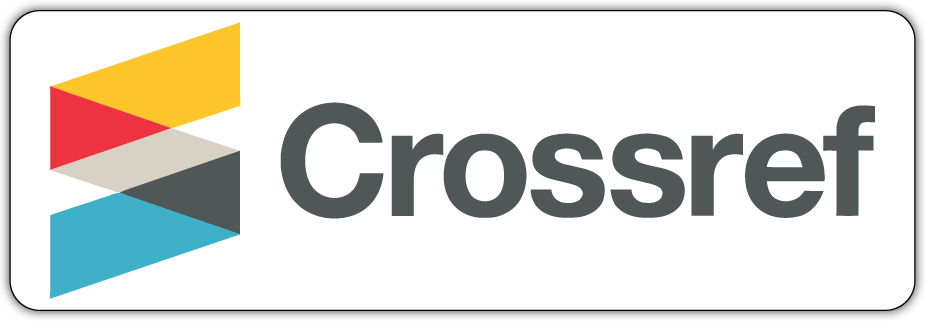Pengaruh Pemberian Insentif Dan Upah Terhadap Hasil Kerja Karyawan Pada PT. Rimba Raya Lestari Di Kecamatan Loa Kulu
DOI:
https://doi.org/10.53640/jemi.v19i2.723Abstract
Abstract :
PT. Rimba Raya Lestari is one of the companies engaged in the industry and trade plywood (plywood) is located in the street Yos Sudarso. 18 Village Jembayan District Loa Kulu. The existing system of incentives at PT. Rimba Raya Lestari is to apply the system of achievement of predetermined targets with the amount of wages or salaries that are adjusted to the number of productivity successful employees do in the day. The number of population in this study amounted to 70 permanent employees of the production and the number of samples used amounted to 70 employees. Analyzer tool in this research is multiple regression analysis that is Test of t and Test F with help of Program SPSS For Window version 20.1 The results of F test calculations can be said incentive variables (X1) and wages (X2) simultaneously (simultaneously) able to show the effect on the work of employees. Then the first hypothesis states that "Incentive Incentives And Wages Influence significantly on Employee Results At PT. Rimba Raya Lestari In Kecamatan Loa Kulu "is accepted and proven to be true. From both result of partial correlation test seen value of incentive variable the biggest influence compared wage variable, so that incentive variable is the most dominant variable influence to employee work result. From that description, hence can be concluded that second hypothesis in this research "That Variable Giving Incentives have a dominant influence on Employee Results At PT. Rimba Raya Lestari In Kecamatan Loa Kulu "is accepted and proven to be true.
Keywords: Insentif, Wages, Work ResultsReferences
Dwiyanto, Agus. 2006, Mewujudkan Good Governance Melayani Publik, Gadjah Mada University, Yogyakarta.
Gomes, Cordosa, 2000, Manajemen Sumber Daya Manusia, Andi Offset, Yogyakarta
Gilarso. 2003. Pengantar Ilmu Ekonomi Makro. Edisi Pertama. IKAPI. Yogyakarta
Hariandja, Marihot Tua Efendi. 2002. Manajemen Sumber Daya Manusia. Grasindo, Jakarta.
Handoko, T. Hani, (2003), Dasar-Dasar Manajemen dan Operasional, Edisi 2. BPFE UGM : Yogyakarta.
Handoko, T. Hani. 2002. “Dasar-Dasar Manajemen Produksi dan Operasiâ€. Edisi Pertama, Yogyakarta, BPFE.
Kiggundu, 2004, Manajemen Personalia, Penerbit PT. Gramedia Pustaka Utama, Jakarta.
Mangkunegara, A.A. Anwar Prabu. 2007, Manajemen Sumber Daya Manusia, Cetakan Ke Tujuh PT. Remaja Rosdakarya, Bandung
Mulyadi. (2001). Sistem Akuntansi. Jakarta: Salemba Empat
Sugiyono. (2011). Metode Penelitian Kuantitatif dan Kualitatif. Bandung : CV.Alfabeta. Jakarta.
Sugiyono. (2007). Metode Penelitian Bisnis. Bandung : CV Alvabeta
Sutrisno, Edy. (2011). Menajemen Sumber Daya Manusia. Jakarta. Kencana.
Siagian, P. Sondang. (2000). Manajemen Operasional dan Produksi. BPFE UGM: Yogyakarta.
Sukirno, Sadono, 2005. Mikro Ekonomi Teori Pengantar, Edisi Ketiga, Raja Grafindo Persada, Jakarta.
Simamora, Henry, 2006, Manajemen Sumber Daya Manusia, Cetakan Ketiga, Bagian Penerbit, Salemba Empat, Jakarta
Simanjuntak, Payaman J. 2005. Manajemen dan Evaluasi Kinerja. Jakarta: FE UI.
Setiyawan, Budi dan Waridin. 2006. Pengaruh Disiplin Kerja Karyawan Dan Budaya Organisasi Terhadap Kinerja Di Divisi
Radiologi RSUP Dokter Kariadi Semarang. JRBI. Vol 2. No 2. Hal: 181-198.
Sarwoto, 2001. Dasar-Dasar Organisasi dan Management. Jakarta. Ghalia Indonesia.
















